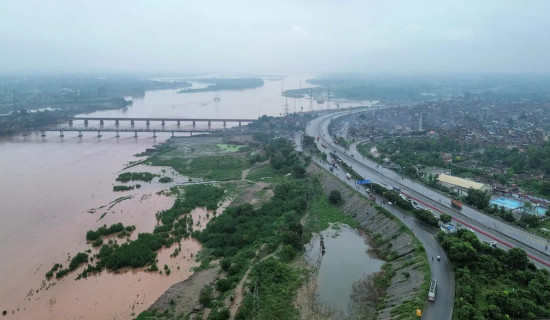- Friday, 29 August 2025
Social Media Regulation
Social media has been a tool for positive transformation in unparalleled ways, revolutionising communication and expanding access to information. It has also been an indispensable platform to empower marginalised communities, social activism and movement, improve emergency response, promote entrepreneurship and businesses, build and consolidate community networks, among many other benefits.
But, at the same time, it has been misused to disseminate misinformation, disinformation and malinformation to mislead people, to undermine social cohesion and disrupt communal harmony, to undermine public trust in the government, to spread manipulated or doctored content with the ill-intention of character assassination of adversaries, among many other downsides. In Nepal, there have been textbook cases of how social media has been used to try to erode people's faith in the judiciary.
Besides, for countless people, the use of social media is an addiction they find it impossible to wean themselves off. The cost of this addiction in terms of fraying social ties, lost time and productivity, loneliness, anxiety, depression and other mental health issues has been alarmingly well-documented. Galvanised by all these and more issues that have been becoming increasingly complicated to address, the government has repeatedly asked social media operators to formally register themselves with the government, obtain a license to operate in Nepal, appoint a local representative (point of contact) and comply with its Directives for Managing the Use of Social Networks, 2023. Clearly, it is asking nothing more than the bare minimum.
Little over a week ago, the Supreme Court also ruled that social media must be registered and subjected to supervision and monitoring under the competent authority. However, despite this directive, social media operators have failed to comply with the order. On August 27, the government again echoed this demand, giving a 7-day ultimatum for registration, and decided to deactivate all social media operating within the country should they fail to comply with the legal notice within the given deadline.
There's no denying that the regulation of social media has become the need of the hour. Once social media obeys the ruling, it allows the authorities to exercise their power to order them to remove content deemed harmful, indecorous or misleading. It also makes it easier for the government to bring cybercriminals to justice, contain the spread of dangerously false information meant to mislead and incite hatred and violence.
Australia is banning the use of social media for everyone under 16 starting in December this year. Countless schools worldwide have banned or limited their use. Numerous governments have started regulating them or are mulling over doing so. Amid this and given the grave consequences unregulated social media can have on the community, society and a nation as a whole, they must be made to operate within the legal guidelines. The government, of course, is not asking too much.
Registration helps ensure that platforms are legally responsible for the content they host and can be held accountable if their users misuse them. It is also imperative to uphold citizens' right to accurate information. Besides, it helps government agencies to track and manage online platforms and content, leading to greater transparency and public trust in the digital landscape. Aimed at addressing concerns about misinformation, cyber safety, and data security, the directive also allows the government to act promptly on user complaints. Respecting this requirement would be in everyone's interest.
















